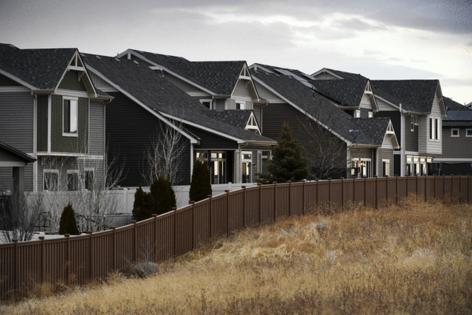New property tax relief proposal gives Colorado lawmakers hope for peace in ballot wars -- but a truce is elusive
Published in News & Features
Ping-ponging property tax rates could reach long-term stability if a proposal introduced in the Colorado legislature on Monday beats the clock for when the body must finish its work this week.
But the proposal, while rallying support inside the State Capitol, did not appear likely to stop ballot initiatives backed by powerful, deep-pocketed interests on the outside that are looking for steeper cuts. The truce sought by lawmakers, so far, has proved elusive.
Ahead of the formal unveiling of the new bipartisan property tax package Monday morning, Gov. Jared Polis joked about “white smoke” emerging over the Capitol — a sign that an impasse that hung over the building for weeks had finally ended. By mid-afternoon, however, old battle lines had deepened, again throwing uncertainty over the future of state property tax policy.
The new legislation, in the form Senate Bill 233, was long-awaited but never guaranteed. It was introduced on the last possible day that would allow it to pass through the General Assembly before lawmakers must adjourn on Wednesday.
“This solves the problem that Colorado voters are concerned about,” Polis said. “It puts very reasonable caps on the increase in property taxes. The reason that many people are out there with ballot issues on the left and the right is that they are very dissatisfied with the status quo.”
If successful, the bill would, beginning in the 2025 tax year, exempt the first 10% of a residential property’s actual value, up to $70,000, for the purposes of tax calculations. It also would tax less of that home’s actual value by lowering the assessment rate, or a percentage taken of the actual value. The reduced value is then multiplied by the local mill levies, or tax rates, to determine the tax bill owed to local governments and special districts. The proposal also includes limits on the growth of property tax revenue.
In the meantime, SB-233 would extend temporary property tax reductions enacted by lawmakers late last year into the current property tax year.
The governor’s office estimated that the longer-term savings would equal about $300 to $400 per year for a home valued at $700,000, though the more precise amount depends on local taxes.
Mill levies vary from county to county and even neighborhood to neighborhood. They raise money to pay for things including schools, parks, libraries, fire and emergency services, and water and sanitation.
Beginning in the 2025 tax year, which is generally paid by property owners the following year, the proposal would reduce property taxes by 7-10% compared to current law for homes valued at $700,000 or less, according to the governor’s office.
...continued
©2024 MediaNews Group, Inc. Visit at denverpost.com. Distributed by Tribune Content Agency, LLC.







Comments